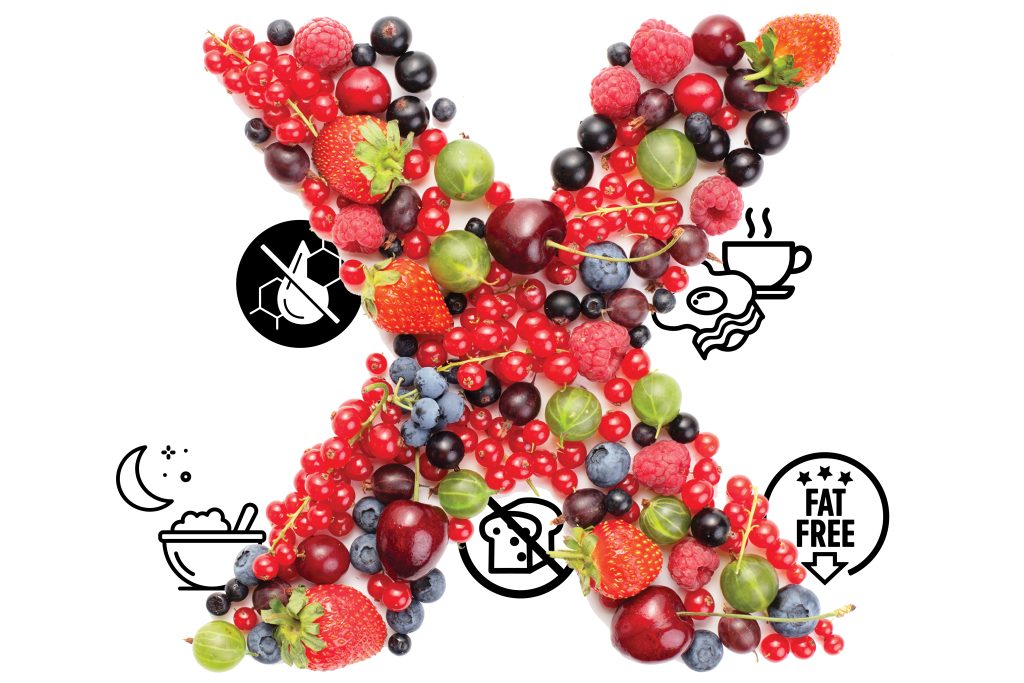From fad diets on social media to weight loss conversations with friends, there’s no shortage of nutrition and diet information out there, but not all advice is good advice. In fact, some of it is rooted in scientific inaccuracy. For National Nutrition Month, we’re debunking a few common food myths so you can make choices about your diet with confidence.
Myth: The key to weight loss is calorie intake.
Creating a calorie deficit by burning more calories than you take in is undoubtedly an important part of weight loss, but it is not all that matters. Even with a low-calorie diet, factors like genetics, health conditions and hormone imbalances play a role in how easily a person may be able to shed pounds. Focusing on limiting calories, also can lead to less sustainable weight loss practices and ignore the overall nutritional values of food—fewer calories doesn’t mean a food will deliver the nutrients you need.
Myth: The key to weight loss is calorie intake.
Creating a calorie deficit by burning more calories than you take in is undoubtedly an important part of weight loss, but it is not all that matters. Even with a low-calorie diet, factors like genetics, health conditions and hormone imbalances play a role in how easily a person may be able to shed pounds. Focusing on limiting calories, also can lead to less sustainable weight loss practices and ignore the overall nutritional values of food—fewer calories doesn’t mean a food will deliver the nutrients you need.
Myth: Breakfast is the most important meal of the day—for weight loss.
Eating a healthy breakfast can help you manage hunger later in the day, but no scientific studies have shown that skipping a morning meal leads to weight gain. In fact, research has found that skipping breakfast can lead to a reduced calorie intake. It’s more important for an individual to listen to their body. If you’re not hungry first thing in the morning, don’t force a meal as part of your routine. For people with increased nutritional needs, such as teens, kids and pregnant women, skipping meals is not recommended as it may have a negative impact.
Myth: Low-fat or fat-free products are healthier options.
It may seem like a natural choice to reach for low-fat or fat-free options, but they aren’t always a healthier alternative. These products often contain extra sugar or salt to make up for the loss of flavor that comes with reducing fat content. Unaltered higher fat alternatives, such as yogurt, cheese or nut butter, are often a healthier choice. When picking out a snack, make sure you compare the nutritional values of the low-fat, fat-free and regular options—making sure to check sugar and sodium levels, not just the overall calorie count.
Myth: Certain foods help you burn calories.
You may have heard that foods, such as grapefruit, cayenne pepper, green tea and black coffee, can help you burn fat. However, there is little scientific evidence to support the ideas that these foods increase metabolism or help with weight loss. Diets focused around a single food are often restrictive and lack important nutrients. It’s also likely that any weight loss is due to extreme calorie restriction rather than the food itself and is therefore not sustainable.
Myth: Eating late at night leads to weight gain.
We’ve all probably heard that to lose weight, it’s important to stop eating after 8 p.m. But the reality is, what time of day you eat has no nutritional impact. The impact on weight is more related to the types of food late-night snackers reach for (i.e. stuff like chips and cookies) and activity. You’re more physically active during the day, so you burn more calories than you do sitting around in the evening. Eating at night can impact your sleep schedule, but again, it largely depends on your personal schedule rather than some universal time cutoff.
Myth: Carbs make you gain weight.
The popularity of low-carb diets has given carbohydrates a bad reputation. These diets, however, are mostly fads—not healthy, sustainable plans for weight management. Eliminating an entire food group often means you miss important nutrients in your diet. Starchy root vegetables, grains and legumes are all high in carbs, but they also offer fiber, vitamins and minerals. However, highly processed, carb-rich foods like chips, cookies, white bread and sugary drinks can lead to weight gain and an increased risk of disease.
Sources: Mayo Clinic, Healthline
